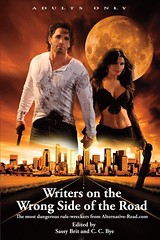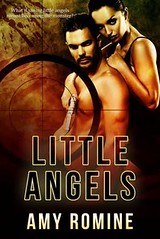
Do You Hear What I Hear? Does the Universal Mind Speak to Us?
Brian Joseph
In his Apology to the Athenians Socrates tells of coming upon a group of poets who do not understand the meaning of their own poems. In his Republic Plato said that all good poets were inspired and possessed when they created. Plato also said that "it is God Himself who addresses us through them" and that God takes away the minds of these poets and uses them as his ministers. Some of the Sufi speak of poetry and prose that comes to them while in an ecstatic state and refer to it as shathiyat. Joseph Campbell spoke of poetry that comes from a transcendent source and how poets can be unaware of what they are talking about.
'Christian fundamentalists' view speaking in tongues as the babbling of nonsense non words and syllables. Is it possible that speaking in tongues was and is more along the lines of what Socrates, Plato, Campbell, and the Sufi spoke of? The author of first Corinthians quotes biblical Paul speaking about spiritual gifts and saying that speaking in tongues and the interpretation of tongues were separate gifts. This sounds similar to what Socrates, Plato, and Campbell were talking about. Was tongues a poetic language 'received' through a sort of open channeling of the Universal Mind?
Those who have had transformational experiences often attempt to describe their experiences poetically and share some measure of success in communicating to others who have had the same or similar experiences. Is there something beyond that? Is there a higher level of communication that is beyond being descriptive of ones personal mystical experiences and the resulting world view? Does the Universal Mind communicate to us through visionaries and poets at times unbeknownst to them? The poet William Blake said that he often wrote line after line of poetry as if it was dictated to him. In their book Higher Creativity Willis Harman and Howard Rheingold discuss the self and culturally imposed limits that people tend to place on creativity. "All persons are hypnotized from infancy by the culture in which they grow up." These imposed limits may be what Blake referred to as " the mind forged manacles" in his poem London. As the saying goes we don't know what we do not know. Harman and Rheingold call the higher part of the Self "the supraconscious" and say that people are usually not consciously aware of this higher part of the Self.
In the consensus paradigm the idea that a person can receive information from a higher level of reality, that God can speak through people is considered psychotic. It is even considered more psychotic if someone claims to be able to interpret or understand these communications. As Stanislav Grof says in Psychology of the Future many of the concepts and experiences that the founders of the world's religions spoke of are considered illness when people experience them in our current era. By the use of the word God I must certainly do not mean the 'fundamentalist' cosmic boogey man dead beat dad that lives outside of creation, as if that were possible. (The term 'fundamentalist' has always struck me as being a misnomer since it is anything but fundamental or basic. Besides its not much fun and its not very mental.)
Are there poems that many of us are familiar with that fit into the category that Socrates, Plato, Campbell, and biblical Paul spoke of? I think that there are. When I first started to discuss this concept with others and gave a couple of examples I saw the raised eyebrows and change of subject from many that indicated lack of interest or the believe that I had gone too far 'out there'. That was many years ago. It was easy to dismiss a few examples as my reading into things that weren't there. When I eventually wrote a novel (The Gift of Gabe) that incorporated the concept and gave many examples I began to hear from readers who thought that I was onto something.
Most people are familiar with the music of The Beatles. Some are so familiar with their music that they can play Beatles songs in their head. This was useful because even if it were possible to reprint the lyrics it would take years to obtain the permissions needed to reproduce them. For lack of a better term I call some lyrics conscious lyrics, meaning that the writer is aware of what they are attempting to express. The novel explored some of these by The Beatles and others but what is relevant to the subject of this essay is the songs of Lennon and McCartney that I consider to be from what Campbell called the transcendent realm.
In a 1968 interview with Rolling Stone John Lennon said that he wrote lyrics that he didn't understand the meaning of until later. He gave as an example the beginning of I am the Walrus as something he wrote without knowing what it meant. I came across an old newspaper article from the early 1980's about a concert that Paul McCartney had just had. In the article McCartney is quoted talking about a remembrance that he had when playing Hey Jude. McCartney said that when he first wrote it he played it for Lennon and told Lennon that he planned to change a line in the song and Lennon told him not to change it saying that it was the best line in the song. McCartney said that he had asked Lennon what it meant. In the last interview that Lennon and Yoko Ono had together appeared in the January 1981 issue of Playboy. During that interview Ono referred to The Beatles as being like mediums with things coming through them and that they weren't fully aware of all that was being said. In a book titled The Age of Rock, edited by J. Eisen contains a McCartney interview by Alan Aldridge. McCartney said that The Beatles wrote songs and knew what they meant but then some people could say that they meant something else and he couldn't deny that they might be right. In an interview with McCartney in the November 2001 issue of Reader's Digest McCartney talked about how he wrote his songs and his view of inspiration. He used the term magic and mentioned having faith in creativity and a spiritual sense that there is something magical.
Do songs that many of us know fairly well have an alternate meaning in an alternate reality? Is there a way of seeing or hearing that requires a different perspective that is completely different from consensus reality? There appears to be commonalities in the symbolism, meaning, and alternate perspective in many of The Beatles songs. While this alternate perspective is most definitely not limited to Beatles songs they can serve as a helpful example because they are familiar and an alternate interpretation can help us to see that we are not always familiar with the familiar. Consider the song Every Breath You Take, by the Police. I read an interview with Sting many years back when the song was popular and he said that it was about how relationships can be posessive and he was surprised to hear that there were couples who called it their song and saw it as speaking of a positive relationship. The general listener didn't understand what he was saying. Could it be possible that there could be another understanding different than both ? Is it possible that Every Breath You Take is shathiyat? What a room looks like depends upon where one stands in the room or as McCartney said in his interview with Alan Aldridge he couldn't deny that the people who thought the songs meant something else might be right.
What are some of the Lennon and/or McCartney songs that can be seen as being shathiyat, tongues, poetry from the transcendent realm, an open channeling of the Universal Mind, or call it what you will ? I'm Looking Through You, You Won't See Me, Hey Bulldog, Nowhere Man, Martha My Dear, Hey Jude, Eleanor Rigby, The Fool On the Hill, Your Bird Can Sing, and We Can Work It Out. The George Harrison song Blue Jay Way is another example. The post Beatles Lennon song Whatever Gets You Through the Night is yet another example of what can be seen as poetry from the transcendent realm.
Brian Joseph writes inspirational short stories and is the author of the novel,The Gift of Gabe. http://www.giftofgabe.com/
~*~*~*~*~*~*~*~*~*~*~*~*~*~*~*~*~*~*~*

Sassy Brit
Alternative-Read.com
"The Inside Story" as told by Sassy Brit and her Gang! Lively and Spirited Reviews
MyBlogLog.com, GatherMe, Shelfari, Sassy's MySpace, AuthorsDen, 360Yahoo, Flickr, YouTube, Facebook, StumbleUpon, Sassy does Jumpcut, Visit our UK Shop, Visit our USA Store,
~*~*~*~*~*~*~*~*~*~*~*~*~*~*~*~*~*~*~*
~*~*~*~*~*~*~*~*~*~*~*~*~*~*~*~*~*~*~*

Sassy Brit
Alternative-Read.com
"The Inside Story" as told by Sassy Brit and her Gang! Lively and Spirited Reviews
MyBlogLog.com, GatherMe, Shelfari, Sassy's MySpace, AuthorsDen, 360Yahoo, Flickr, YouTube, Facebook, StumbleUpon, Sassy does Jumpcut, Visit our UK Shop, Visit our USA Store,
~*~*~*~*~*~*~*~*~*~*~*~*~*~*~*~*~*~*~*
ARTICLE: Do You Hear What I Hear? Does the Universal Mind Speak to Us? Brian Joseph
 Reviewed by Sassy Brit @ Alternative-Read.com
on
6:12 am
Rating:
Reviewed by Sassy Brit @ Alternative-Read.com
on
6:12 am
Rating:
 Reviewed by Sassy Brit @ Alternative-Read.com
on
6:12 am
Rating:
Reviewed by Sassy Brit @ Alternative-Read.com
on
6:12 am
Rating:







No comments:
Thanks for taking the time to leave a sassy comment. It's truly appreciated. I aim to get back to you as soon as possible -- Sassy :)